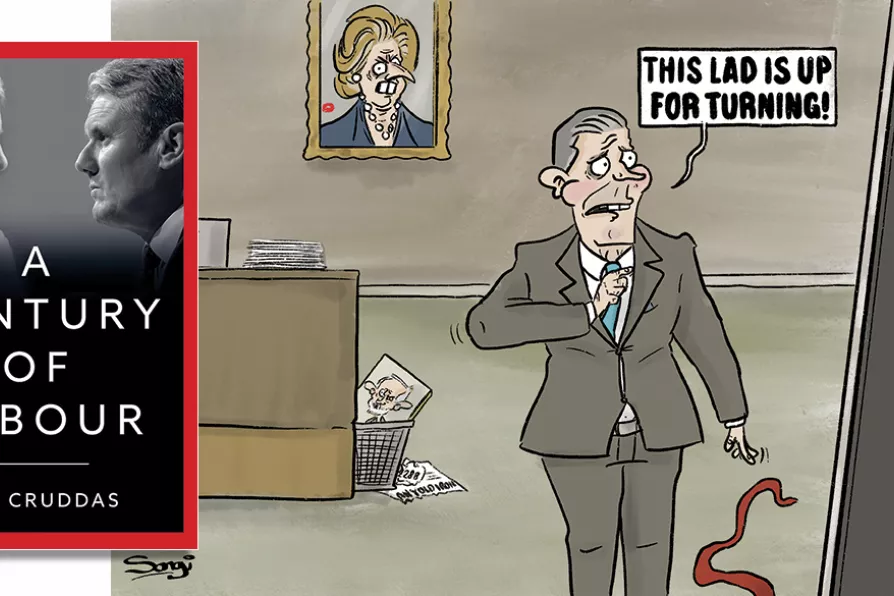RITA DI SANTO draws attention to a new film that features Ken Loach and Jeremy Corbyn, and their personal experience of media misrepresentation
Quo vadis?
Finding or refinding its purpose will be fundamental to the future of the Party - what that cannot mean is being a lighter shade of blue, writes PAUL DONOVAN

 Cartoon: Pete Songi
Cartoon: Pete Songi
A Century of Labour
by Jon Cruddas
Polity £25
LABOUR MP Jon Cruddas has produced a timely account of the 100-year history of the Labour Party.
The retiring MP for Dagenham and Rainham poses a number of challenging questions throughout, not the least being does the party have a purpose?
Similar stories

While Hardie, MacDonald and Wilson faced down war pressure from their own Establishment, today’s leadership appears to have forgotten that opposing imperial adventures has historically defined Labour’s moral authority, writes KEITH FLETT

STEPHEN ARNELL examines whether Starmer is a canny strategist playing a longer game or heading for MacDonald’s Great Betrayal, tracing parallels between today’s rightward drift and the 1931 crisis

Starmer’s unseemly rush to the right is part of a historical pattern when Labour is in power, argues ANDREW MURRAY, but there’s no reason why politics in general should follow this trajectory

DAVID NICHOLSON is fascinated by one of the early pioneers of the women’s movement and of the early days of the Labour Party










